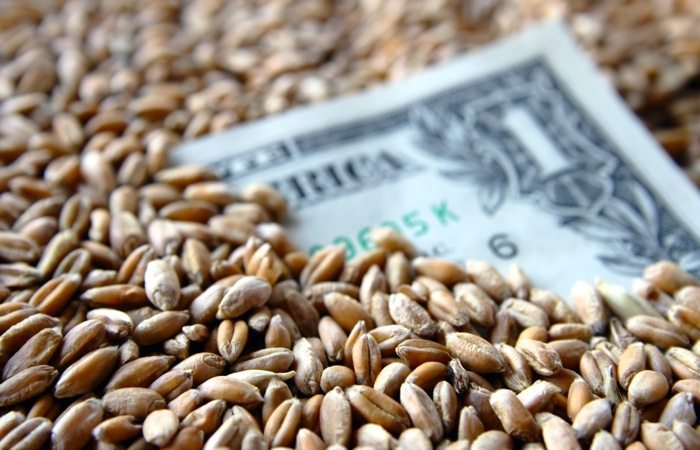Moscow / Reuters — Russia stiffened its bid to curb grain exports on Monday with plans for a duty on shipments, to defend domestic bread supply against a crumbling rouble.
Russia, one of the world’s top wheat exporters to North Africa and the Middle East, has been exporting record volumes of grain this year as the rouble fall attracted buyers.
It brought in a large grain crop of 104 million tonnes but after the surge in exports Moscow needed to hang on to its remaining stocks, Prime Minister Dmitry Medvedev told a meeting with officials.
Read Also

Alberta crop conditions improve: report
Varied precipitation and warm temperatures were generally beneficial for crop development across Alberta during the week ended July 8, according to the latest provincial crop report released July 11.
“(We will) prepare a proposal for a decision on export duty. It will be done within 24 hours,” Deputy Prime Minister Arkady Dvorkovich told the meeting. Medvedev told Dvorkovich to submit the proposal for his signature.
Turkey and Egypt are the largest buyers of Russian wheat.
Neither man said when, at what level or for which type of grains the duty was to be imposed. Russia used a protective duty on wheat exports in 2008.
Officials are discussing a prohibitive duty and may impose it earlier than exporters are able to fulfil already-signed contracts, an industry source familiar with the discussions told Reuters.
Dmitry Rylko, the head of IKAR consultancy, said he expected the duty to be at a prohibitive level. Traders have forward contracts for Russian grain until April.
Last week, Russia cut railway loadings of grain for export, industry sources said. State-controlled Russian Railways, which has a monopoly on rail shipment, declined to comment.
That was in addition to tougher rules for quality checks, imposed by the state food safety watchdog earlier in the week to stop some grain leaving the country.
U.S. wheat prices rebounded on Monday after reports of the duty from Russia.
“The import duties would make a big difference,” a European trader said. “Export duties would mean that sellers must still fulfil their selling commitments.”
“This means that sellers could not claim under prevention of delivery clauses in international trading rules,” he added. “Sellers of Russian wheat will be in a great financial mess depending on how high the export duties are set at.”
Russia could export 28 million tonnes of grain without damaging domestic needs, of which 21 million tonnes had already been exported since the start of the 2014/2015 marketing year on July 1, Dvorkovich told the meeting.
Dvorkovich’s spokeswoman declined to comment further.
















